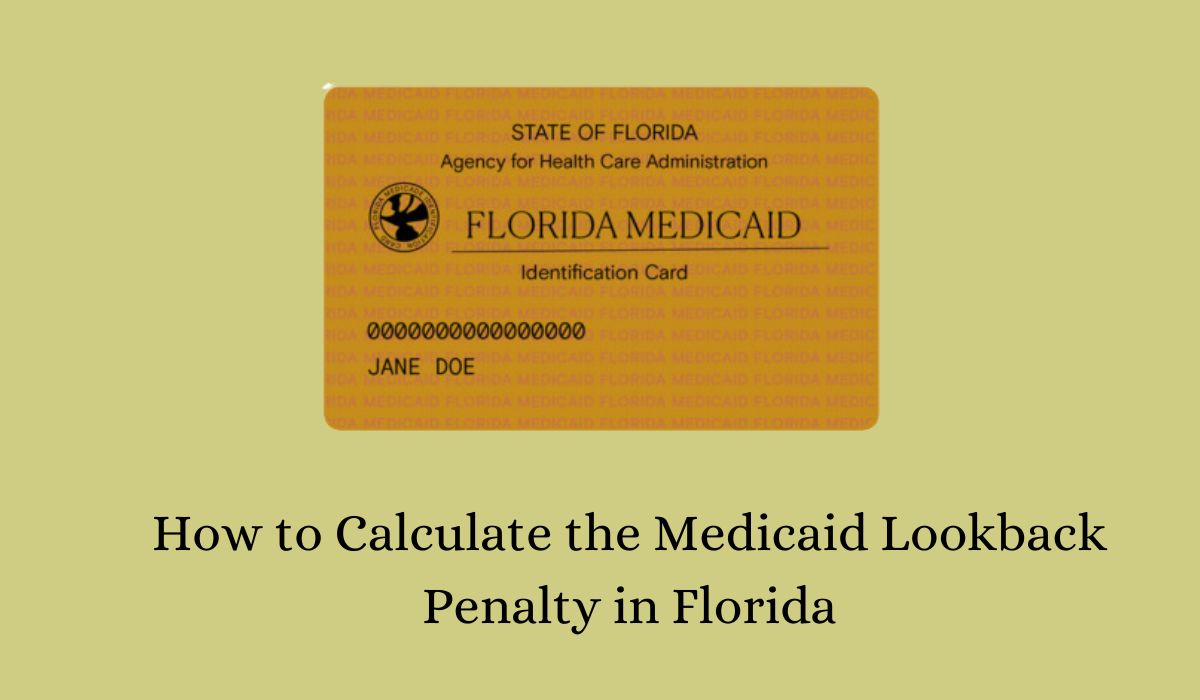As a senior citizen living in Florida, you may be eligible for Medicaid to help cover your medical expenses. However, if you have transferred assets or given gifts within the previous five years before applying for Medicaid, you may face a penalty known as the “Medicaid Lookback Penalty.”
This penalty is designed to prevent individuals from giving away their assets just to qualify for Medicaid. Here’s everything you need to know about calculating the Medicaid Lookback Penalty in Florida.
What is the Medicaid Lookback Period?
The Medicaid Lookback Period refers to the five years immediately preceding your application for Medicaid. During this time, any transfers of assets or gifts made by you will be scrutinized.
If it is found that you have transferred assets without receiving fair market value in return, you may be subject to the Medicaid Lookback Penalty.

What is Considered a Transfer of Assets?
A transfer of assets can include any action where you give away your assets or property without receiving fair market value in return. This can include selling your property for less than its worth, giving gifts to family members, or simply transferring ownership of an asset to someone else.
How is the Medicaid Lookback Penalty Calculated?
The Medicaid Lookback Penalty is calculated by dividing the total amount of assets transferred during the lookback period by the monthly cost of nursing home care in Florida. This calculation will determine the number of months that you will be ineligible for Medicaid coverage.
Here’s a step-by-step guide to understanding how this penalty is calculated:
Step 1: Identify Ineligible Transfers
First, identify any transfers of assets that occurred during the five-year lookback period. These can include gifts of money, the sale of assets below their fair market value, or transfers into a trust. Not all transfers will trigger a penalty; only those that were made for less than fair market value.
Step 2: Determine the Total Value of Transferred Assets
Calculate the total value of all assets transferred for less than fair market value. This total is used to determine the length of the penalty period.
Step 3: Understand the Penalty Divisor
Florida Medicaid uses a specific figure known as the “penalty divisor” to calculate the penalty period. This divisor represents the average monthly cost of nursing home care in the state. The divisor can vary by year and region, so it’s important to use the current figure for accurate calculation.
Step 4: Calculate the Penalty Period
Divide the total value of the transferred assets by the penalty divisor. The result is the number of months the individual will be ineligible for Medicaid long-term care benefits.
Example:
If the total value of transferred assets is $60,000 and the penalty divisor is $8,000 (hypothetical average monthly cost of a nursing home in Florida), the penalty period would be calculated as follows:

In this example, the individual would be ineligible for Medicaid long-term care benefits for 7.5 months.
Step 5: Consider the Start Date of the Penalty Period
The start date for the penalty period is not necessarily when the asset was transferred. Instead, it begins when the individual is both residing in a nursing facility and has applied for Medicaid, and would otherwise be eligible but for the transfer.
Important Considerations
- Regular Updates: The penalty divisor is subject to change, so it’s important to use the most current figure for calculations.
- Partial Months: Florida may round the penalty period to the nearest whole number, depending on the state’s specific policy.
- Exemptions and Exceptions: Certain transfers are exempt from penalties, such as those made to a spouse or a disabled child.
- Legal Advice: Given the complexity of Medicaid rules, it’s advisable to seek legal advice from an attorney specializing in elder law or Medicaid planning. They can help you navigate the process and potentially avoid or reduce penalties.
Conclusion
The Medicaid Lookback Penalty is an important consideration for seniors when applying for Medicaid in Florida. By understanding the rules and calculations involved, you can make informed decisions about your assets to ensure eligibility for long-term care benefits.
Remember to stay updated on the current penalty divisor and seek legal advice if needed. With proper planning, you can avoid any unexpected penalties and secure the necessary coverage for your health needs.
